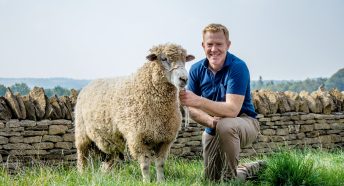CPRE welcomes the Agriculture Bill
On Friday, the last day in January, the UK will be leaving the European Union, and as a consequence will no longer be constrained by the requirements of the Common Agricultural Policy. CPRE has welcomed the Agriculture Bill which was introduced into parliament on 16th January.
On 16th January the government introduced the Agriculture Bill into parliament. Environment Secretary, Teresa Villars said “Our landmark Agriculture Bill will transform British farming, enabling a balance between food production and the environment which will safeguard our countryside and farming communities for the future”. “We will move away from the EU’s bureaucratic Common Agricultural Policy towards a fairer system which rewards our hard-working farmers for delivering public goods, celebrating their world leading environmental work and innovative modern approach to food production.”
CPRE welcomed the new Bill which it said offered a once-in-a-generation opportunity to change the way England farms for the better. It represented a radical rethink of farming practice and, most importantly for CPRE, finally starts to recognise the need to regenerate soil – the fundamental building blocks of our entire agricultural system. CPRE has been campaigning about the importance of better soils management and published a report in 2018 Back to the land: rethinking our approach to soil which set out practical ways to restore soil and new approaches to policy.
Crispin Truman, chief executive of CPRE, said: “This agriculture bill has been a long time coming but it’s clear the government has listened to CPRE’s message about the importance of soil. Healthy soil is essential for the supply of healthy food, clean water and also helps us lock up carbon to tackle the climate and nature emergency.”
“As new payment schemes for farmers are developed, there must be clear support for approaches already being pioneered and made to work by farmers such as agroforestry and conservation agriculture. But farmers need training, mentoring and advice to help them roll out nature-friendly farming across the countryside.”





